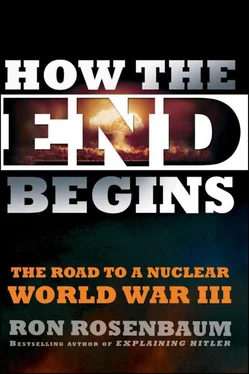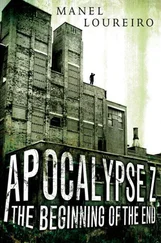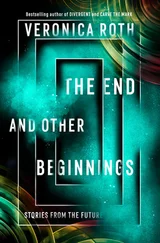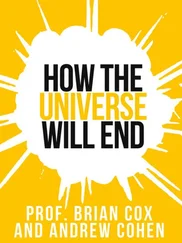04 Oct. [2009] Western naval sources report that Israel’s German-made Dolphin submarines have been heavily modified: its torpedo tubes enlarged to accommodate missiles, new electronics installed and its fuel capacity expanded to keep the vessel at sea for 50 days without refueling. Eight years after receiving the first three Dolphin subs from Germany and two more last month, naval sources rate them the most modern non-nuclear [-powered] subs in any world navy. Israel has equipped the new Dolphin-class subs with homemade 1,500-km range cruise missiles carrying 200 kiloton nuclear warheads and 135-km range US-made Harpoon missiles also fitted with nuclear warheads. These missiles, fired through the newly-enlarged 650mm-26-inch tubes, can reach Iranian coastal targets including its nuclear sites as well as naval, port and Revolutionary Guards facilities. The Dolphins’ expanded fuel tanks enable them to cover distances of up to 10,000 kilometers from their Mediterranean home port (instead of 8,000 kilometers heretofore) and spend more time—up to 50 days—off the Iranian coast.
DEBKAfile’s military sources note: “Their presence outside Israeli waters is a powerful deterrent to any surprise nuclear or conventional attack, endowing Israel with an instantaneous second-strike nuclear capability.”
It seems likely someone in the Israeli high command authorized this leak, wanted to paint a detailed picture for most likely the Iranians—and for anyone else who thought a nuclear strike on Israel would go unpunished. There’s no point in Israel having five German-made submarines unless it were for the purpose of having an invulnerable second strike retaliatory capacity. I certainly think DEBKAfile’s sources wanted its readers in Islamic capitals to believe that nuclear retaliation was inevitable.
I asked Halbertal, “Does nuclear war change traditional just war thinking?”
“Yes,” he says. But adds, “I must say I’m in agony about it. I don’t have a clear answer to it. I’ll tell you what’s my dilemma. I don’t think that ‘Supreme Emergency’ is a reason for intentional killing of all civilians. I don’t think you are allowed to do it, morally.”
“Now, ‘Supreme Emergency’—that’s Walzer’s term, right?” I asked him.
“Exactly.”
“And when you say ‘intentional killing of all civilians’ with regard to nuclear war that would mean either a preemptive or a retaliatory strike?”
“Right, but leave nuclear war aside for a moment and look at the difficulty of ‘supreme emergency.’”
“Supreme Emergency” is a phrase adopted by Walzer from a 1939 speech by Winston Churchill in an attempt to reconcile just war ethics with the killing of innocent civilians entailed in the nighttime bombing of German cities. Halbertal began contextualizing his views on nuclear war by tracing the differences he and Walzer have over what recent historical events qualify as supreme emergencies.
He points out that Walzer first used the term “supreme emergency” when discussing Churchill’s decision to bomb German cities and the civilians who lived in them in 1940.
“Here was a supreme emergency,” Walzer writes, referring to the period after the fall of France before the entrance of the U.S. in the war, “when the victory of Hitler’s evil seemed assured, where one might well be required to override the rights of innocent people and shatter the [Geneva] war convention” that requires distinguishing between combatants and noncombatants. [238]
Walzer concedes that its morality is not a sure bet: “Should I wager this determinate crime against immeasurable evil [of a Nazi victory]?,” he asks. His answer: yes. [239]
Walzer’s use of the word “wager” is almost shocking in its lack of conviction. It’s just a bet that bombing civilians might be the right thing to do when weighing the determinate against the immeasurable. He chooses his words carefully and tentatively because he knows he’s treading on a minefield. This is the kind of wager in which one just can’t calculate odds. Only in hindsight, but not when the choice is made. Then one must trust in “moral luck.”
Halbertal too is troubled by the fact that “supreme emergency” is a subjective judgment. And there are some moral minefields he’s not willing to follow Walzer into, including Churchill’s decision to bomb those German cities in 1940. It’s not an easy question. In hindsight one can understand the rationale for Churchill’s orders even if one does not accept it: Hitler’s victory in France in 1940 and the paucity of British defenses at the time made it seem like the conquest of England would be short work and would subjugate the entire continent to a thousand-year reign of evil. Does this imminent threat not count as a supreme emergency, even if the purpose of bombing German cities is morale-building mass slaughter? Even if it’s based on weighing the immeasurable more heavily than the determinate? Could England have survived without it? Churchill didn’t think so but he couldn’t know.
“No, you cannot save your life at the expense of actual targeting of innocent people,” Halbertal says, emphatically disagreeing with Walzer—and Churchill.
This is the unshakable foundation of Halbertal’s thinking. “You cannot save your life at the expense of actual targeting of innocent people.” But his thinking can lead to some surprising conclusions such as his argument that in certain cases a preemptive nuclear strike can be moral while retaliation after being struck by nuclear weapons cannot be.
He accepts the supreme emergency exception but locates the moral problem, the one that may be impossible to find an objective answer to, in the “threshold” issue. What is the threshold of a supreme emergency? What makes an ordinary emergency so supreme, so urgent that it justifies lowering the threshold of the distinction between combatants and noncombatants? Is it timing, the imminence of threat, or is the magnitude of threat or some algorithm that links them? Alas, problems of morals are not soluble the way problems of mathematics are.
“Now when it comes to nuclear weapons,” Halbertal says, “that’s where I think [Walzer] is rightfully very critical of the way nuclear weapons were used to end the Second World War.” He’s talking about Hiroshima and Nagasaki. “He’s [Walzer] right that there could have been a cease-fire, or a treaty without actually the absolute surrender of Japan.” What Walzer says is that “to use the atomic bomb without even attempting such an experiment was a double crime.” [240]
Halbertal takes issue as well with another argument in favor of dropping the bomb—that it would save the lives of soldiers who would otherwise die in an invasion of the Japanese home islands. “Something he [Walzer] doesn’t raise, but I don’t think he’d approve of, is the argument that you save even a hundred or two hundred thousand soldiers of our stripe by absolute indiscriminate intent of killing Japanese children.”
Actually most estimates are higher for U.S. invasion casualties. (And those numbers don’t include the million or more Japanese civilians who might die in an invasion, five times more than in Hiroshima and Nagasaki.) Note though, the uncompromising language of his description of the indiscriminate killing of the innocent in Hiroshima and Nagasaki—“absolute indiscriminate intent of killing Japanese children.”
It wasn’t really the main intent, to kill children, but it was the effect. And Halbertal’s way of thinking about these things demands that states take responsibility for the effect as well as the intent of their acts—as if the effects were included in the intent.
So it didn’t entirely surprise me when he said, “So when we come to nuclear war things are a little bit changed. Now when it comes to strategic deterrence, you might threaten it as a strategic thing, that’s fine as long as you’re not going to use it—or then you’re going to have an esoteric morality for strategic reasons.”
Читать дальше











